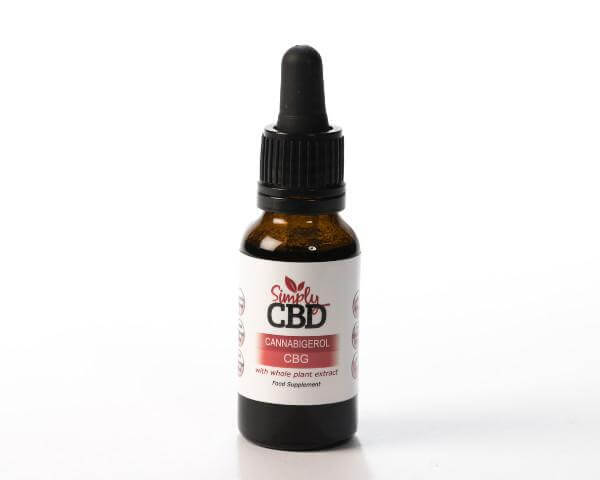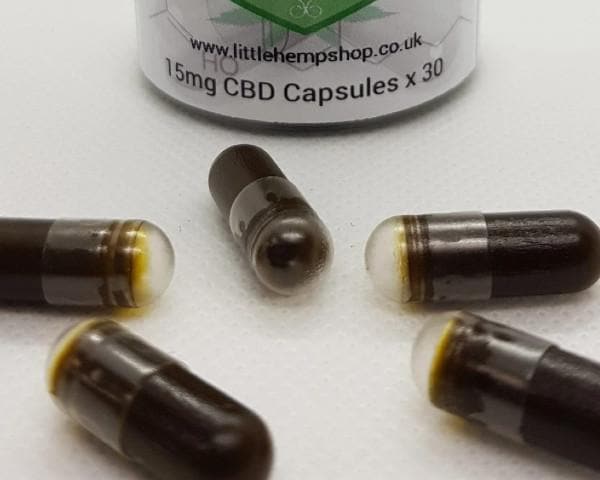Is Cannabis For Sale Legal in Your State?
 The question of whether or not cannabis for sale is legal in your state is dependent on your personal circumstances. Find out if cannabis is legal in Illinois, Vermont, or New Jersey. Each state has its own laws and regulations for the use of marijuana and its sale. This information will help you make an informed decision on whether to purchase a medicinal marijuana product or a recreational marijuana product.
The question of whether or not cannabis for sale is legal in your state is dependent on your personal circumstances. Find out if cannabis is legal in Illinois, Vermont, or New Jersey. Each state has its own laws and regulations for the use of marijuana and its sale. This information will help you make an informed decision on whether to purchase a medicinal marijuana product or a recreational marijuana product.
Illinois cannabis for sale in Illinois
 There are a number of factors that influence the legality of marijuana for sale in Illinois. First, marijuana can only be sold only to those who is 21 years of age or older. The second requirement is that Illinois marijuana laws require that you pay a sales tax for cannabis edibles, flowers, and concentrates. This tax will be 7 percent of the retail cost of cannabis. Local municipalities could levy an additional sales tax, in addition to state taxes. You’ll also have to visit a licensed dispensary under Illinois marijuana laws.
There are a number of factors that influence the legality of marijuana for sale in Illinois. First, marijuana can only be sold only to those who is 21 years of age or older. The second requirement is that Illinois marijuana laws require that you pay a sales tax for cannabis edibles, flowers, and concentrates. This tax will be 7 percent of the retail cost of cannabis. Local municipalities could levy an additional sales tax, in addition to state taxes. You’ll also have to visit a licensed dispensary under Illinois marijuana laws.
Illinois is among the few states that have not banned marijuana sales. The state has an Medical Cannabis Patient Program, which enrolls approximately 172,000 eligible patients. Additionally, Illinois has a Smoke-Free Illinois Act which prohibits smoking in public spaces. This covers all public areas owned by the state and lease-hold buildings. However private residences are not included. This is due to the fact that they are usually used for foster or child care.
Another important change to Illinois cannabis laws is the legalization of recreational marijuana. This new law will take effective on January 1st 2020. In addition, all marijuana that is sold in Illinois dispensaries will be grown in Illinois. Furthermore, Illinois marijuana laws also prohibit the use or possession of marijuana-related products in public places.
In 2019, Illinois lawmakers made recreational marijuana legal. The first sales will be available in January 2020. The law also extends the medical marijuana laws, allowing cardholders to purchase marijuana at lower costs. Additionally, cardholders will be given priority in the case of a shortage. The legality of selling cannabis in Illinois will thus depend on many aspects.
While legalizing cannabis in Illinois might have some benefits however, it has some drawbacks. It opens the door to increased youth drug use. Furthermore, it opens the door for a higher risk of being found guilty of the crime. It will also force school officials to make major changes to their policies on employment.
Washington state legalizes cannabis for sale
Washington state has legalized marijuana purchase and sale. The Secretary of State is required to register marijuana businesses. This registration ensures that the company has limited liability. In addition it is not allowed to offer samples or allow customers to consume cannabis on its premises. Companies that fail to adhere to the law are at risk of fines and other legal penalties.
2012 was the year that Washington legalized recreational marijuana. The law, which was approved in 2012, permits adults over 21 to purchase cannabis-related products from licensed dispensaries. The state also has a medical marijuana program that allows those with certain medical conditions to purchase cannabis products from dispensaries. It is still illegal to sell or consume cannabis in public places.
Washington state only allows adults who are 21 or older to use cannabis. It is not legal to consume marijuana in public and is harmful for health. It is illegal to purchase marijuana-related products from shops that are not licensed. Additionally, marijuana products are not allowed to be purchased on cruise ships, on federal land, or on navigable waterways. To buy marijuana, one must be at least 21 years old age and have an authentic state, province, or federal identification card.
Only licensed dispensaries are able to sell marijuana in Seattle. No lounges or cannabis cafes are allowed, nearby and no delivery services are available. That means that those who want to purchase cannabis should seek out marijuana stores in nearby cities. This will help them avoid the high cost of operating a business in their city.
Vermont legality of cannabis sale
The cultivation and Cbd tyne and wear [http://jejut.kr] sale of cannabis for personal use in Vermont is legal. However, consumption of cannabis in public places is prohibited. Only a handful of people could be eligible to apply for a license to purchase cannabis personal use. The state is working to increase access to the program and has passed S. 16 to expand the list of qualifying conditions. The new law also allows for an additional dispensary. Presently, only four dispensaries are licensed in Vermont. There are plans to open a sixth dispensary when the state’s patient list is 7,000.
The Vermont Cannabis Control Board has prioritized social equity applicants who are from historically marginalized communities – in applying for a retail license. Local growers are among those people. The first retailer to open in Vermont was Mountain Girl Cannabis, run by an Hispanic couple. Other retailers are in the planning phase, however, many anticipate opening within the next few months. It’s a brand new experience, but it is not without difficulties. Customers are required to interact with employees in the stores.
Many growers are unhappy with the lengthy procedure of applying for a license. The Cannabis Control Board is tasked with reviewing applications and creating regulations at the same time. Many people had hoped for an approval by the end of May, but this hasn’t come to pass. This is understandable considering that the initial staff is small.
While Vermont has legalized marijuana, driving under the influence is still illegal. If you’re in the habit of driving while under the influence, you could be arrested and face the possibility of a fine of $750 and up to two years in jail. This is even true for those who are registered as patients but don’t smoke marijuana while driving. You can also be penalized $200 for carrying a marijuana open container in your car.
New Jersey legality of cannabis for sale
Since the legalization of cannabis in New Jersey, more dispensaries are popping up. While the majority of them are medical marijuana establishments and could soon be legally permitted for recreational use, there are potential recreational dispensaries. While the state is still deciding what products are allowed to be sold, it’s likely that recreational cannabis will be available by the end of July 2022.
After years of prohibition, New Jersey legalization of cannabis for sale has created a new kind of opportunity for residents. New laws in the state of New Jersey will allow six sectors of the marijuana industry, including microbusinesses with fewer than 10 employees. Social justice was the main motive behind New Jersey’s marijuana legalization legislation. At the time, Black residents were arrested for marijuana possession at an amount 3.5 times more than their white counterparts despite the same levels of use. Advocates were determined to ensure that Black communities and Latino communities could also be a part in the legal marketplace.
Though marijuana laws are becoming more liberal, New Jersey continues to have severe penalties for violating these laws. One marijuana plant could put someone in prison for up to five years and a fine of up $25,000. But it is important not to let the state’s legalization of marijuana cause you to think that the state isn’t taking marijuana laws seriously. New Jersey’s Democratic Governor, Phil Murphy, said last October that he was not sure why the state continued to criminalize marijuana. Additionally, he said he was “open-minded” to amending the state’s marijuana laws.
Although New Jersey’s law permits adults 21 and older to purchase up to one 1 ounce of marijuana, it doesn’t permit the sale of edibles or baked products. While marijuana is legal in New Jersey, it cannot be transported across state borders.
Connecticut legality of cannabis for sale
Connecticut residents who are 21 or older are able to purchase and possess up to an ounce recreational cannabis. The state has legalized medical marijuana since 2012, but not recreational use. Although recreational use is legal in Connecticut, it is still illegal to sell , grow, or offer it to anyone else. This is expected to change with the state’s new law.
The bill experienced a bumpy ride through the state legislature. After Governor Lamont threatened veto of the bill due to a last-minute Senate Amendment that would have given sellers and users of marijuana an advantage, House members voted to remove the amendment from the legislation. The debate continued to the very end of the State Senate. Opponents of the bill critiqued the “social equity” clause and raised questions about addiction.
The new law also bans cannabis advertising. The state’s marijuana law prohibits cannabis advertisements within 500 feet of schools. In addition a tax of 12 percent on cannabis sales is imposed on each purchase. The Connecticut legal marijuana industry can generate between $75 million and $100 million in tax revenue per year and create 3,000 new jobs. Local governments are not prohibited from allowing cannabis businesses however, they can limit their number and distance from schools and daycares. The state’s regulatory and licensing department will supervise the new cannabis industry.
The law also requires retailers of marijuana to meet more stringent security requirements and regulate consumer interactions and adhere to strict public health and safety measures. In a few months the regulations will be finalized and licenses issued. The first retail sales of recreational cannabis are expected to begin in April 2022 by marijuana companies.